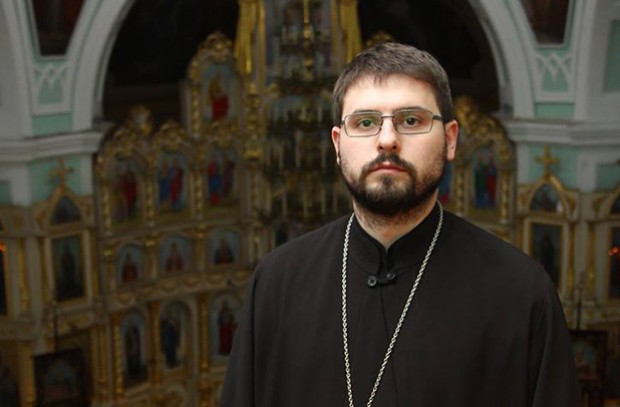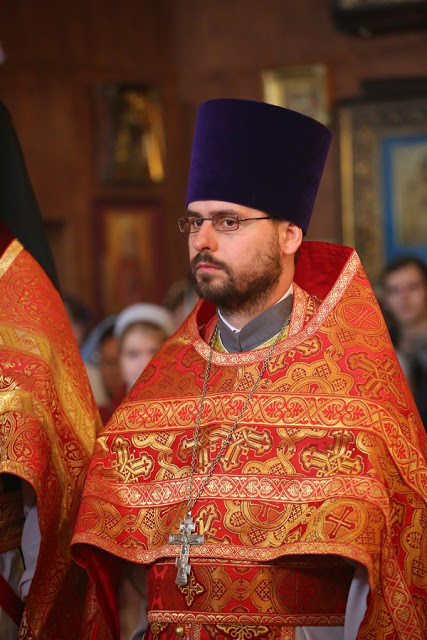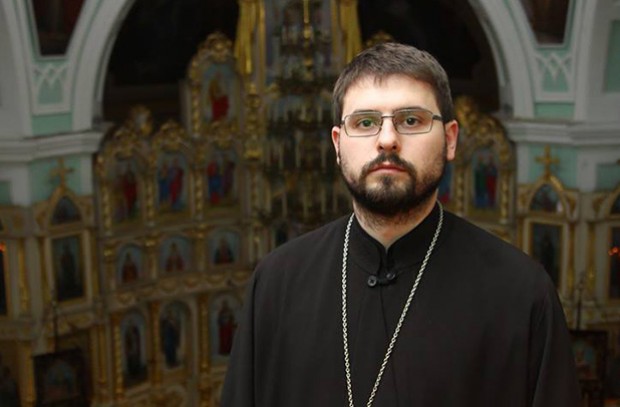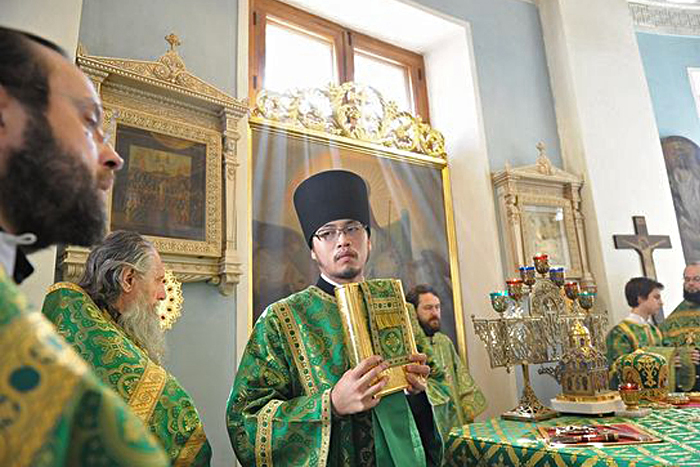
I have become a priest recently – a bit more than a year ago. The time before ordination is always special. You understand that just in a few days your life will change. Only after ordination, I understood that I took the greatest responsibility on my shoulders – to serve near the Throne. Of course, I faced my first challenges.
The fists service is always scary
When I became a priest, I was often asked about the feelings I had during the moment of ordination. At first I was ashamed to say that I felt nothing. Of course, I was worrying, I understood that something unreal was happening at that moment. At the same time, before my ordination I had read a lot of books about the memories of various priest, in which they described their unusual feelings, so I was ashamed to say that my ordination was quite ordinary. Then I understood there was nothing to be embarrassed of. The main thing was that I was going to ordination for years, I was preparing for it and finally got it through the apostolic succession of my hierarch. All the rest will come later.
Your first services are always scaring. You are standing near the Altar, looking into the service book (which is covered with pencil writings just like a student’s exercise-book) and trying to understand what is written in it. On each page, between the lines and everywhere where there is a free space you make notes about what you should do at this or that moment. However, your own writing becomes absolutely illegible. It comes out that you do not know any exclamations, you read prayers with mistakes, enter wrong doors and that the embers in your censer have faded already.
And after a while, a really dreadful temptation comes. You begin to doubt: did I do everything right to make prosphora and wine turn into Blood and Body of Christ? Does the sacrament that I have performed, have an effect?
-

Fr. Anthony Skrynnikov
The art of Confession
When you are going to confess for the first time, you are consumed by thoughts: what should I say to the people who come for Confession? Only with the course of time, I understood that the sacrament of Confession is not a spiritual conversation. A priest in not does not have to say something. He has to listen to, he has to understand whether a person is sincere in his repentance or not. Giving advices is not always appropriate.
When people see a new priest in the church, they want to come to him or Confession. He is less strict, he will not give penance to you, but the most important thing is you are not ashamed to repent in your recurrent sins because he does not know that you have been repenting in this for many years.
A priest is not a walking encyclopedia of wisdom for all occasions. Of course, he must be well educated, but he cannot know everything. A priest must know how to overcome his fear of answering, “I am sorry, but I do not know” if the question is difficult. Metropolitan Anthony of Sourozh said in one of his words about Confession: sometimes an honest priest should say, “I felt your whole confession with you, but I do not know what I can say to you. I will pray for you, but I cannot advice you something”.
If you have no children, do not tell other people how they must bring their children up in the right way. It would be better if you advice some special literature to read or refer them to a priest who can give a piece of advice on this issue. It is said in the priest’s handbook that a “secular priest” must not tonsure someone a monk because he cannot give something what he lacks himself. Here is the same: one must not say something what is not filled with his personal life experience.
Money and services
In my opinion, we get too much money for house consecration and other occasional services. This is why I see any donation for occasional services as my personal duty to pray for these people, to commemorate them during the liturgy.
From the very beginning of my priesthood, I began to follow the practice according to which no service must turn into a casual work or means of earning money. This is why when I perform the sacrament of Baptism, consecrate something or serve any other service, I do the following two necessary things: I say a sermon and I offer people to invite me to come to them in their spare time. People are especially glad to hear this proposal after the Baptism of children. Parents invite me into their home, they prepare and ask questions. Thus I get an opportunity to have a good missionary conversation.
The most “problematic” money are the money for funeral services. Sometimes you just do not want to take it. You cannot just come, wave the censer several times, read all the necessary prayers and leave. You have to say something to the mother, wife, husband and other relatives standing around the coffin. It can be really difficult to do this. You don’t want to say obvious things or repeat complicated thoughts of the Hoy Fathers. It is a different situation when you need to show you sincere empathy. Sometimes it is hard to hold back the tears. I never thought that a priest’s tears during the service are the sign of his weakness. If fact, it is the opposite: if we still can feel the sorrows of strangers so deeply, then it means that our heart is still alive and we have not turned into simple service performers.
On the other hand, funeral service is, perhaps, the most helpful service for a priest’s soul. When you see the deaths of people of different age and gender, it cannot but make you think: one day it will be me, my wife, my parents. With what will we come to God and what will we submit to His judgement? I was especially touched by one funeral service. A woman came, if you beg my pardon, to the stinking corpse of her husband, kissed it in the lips and said the following simple and right words: “Sleep well, my dear, we will meet again soon and be together”. May every priest have such a strong faith!
Through the heart
The life of a priest is full of impressions, emotions and feelings. There are days when you face human happiness in the morning. You are marrying a beautiful couple. They are looking at each other and praying for their happiness. You are witnessing a joyful event and feeling happy for them. You say some guiding words, wish them family wisdom and God’s help. A new life is opening before them. They do not know yet that family life is not only smiles, kisses and feasts.
Then you go to anoint a sick or dying person. There is little pleasure in it. There is only hope for God. When you anoint a person, you explain the essence of the sacrament of Holy Unction, you feel empathy for this person and tries to support and comfort them. Sometimes a conversation after Holy Unction can last for hours. The sick people, captured between four walls, who suffer from the lack of attention and communication.
Then goes a funeral service in a mournful morgue of a small room full of people with burning candles in their hands. There are only tears and sorrow. And you feel sorrow too, tries to say something, a word, which is not always heard.
It is like this every day. A priest has to pour everything through his heart. One must not feel sorrow and comfort people formally. It is impossible to smile to the newlyweds without feeling happy for them. If there is no such feelings, then we speak about an unhappy priest. It is a service performer, who is just out of place.




